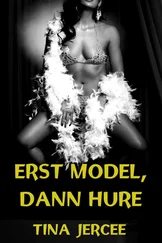Two days after his car — an ’85 Chrysler LeBaron with leather seats and all-power accessories — vanished from the driveway, Warren Ziller crept past the expensive homes of his neighbors, trying to match his dog’s limp. Buggy Whip Lane was shrouded in a mist that blurred his glasses. It was June, month of foggy mornings; vines of bougainvillea climbed the telephone poles and hung like tinsel from the wires. Warren tugged at Mr. Leonard’s leash, trying to keep to the narrow horse trail skirting the road. The wood chips at his feet sent up a pleasing funk of manure. He passed the Hathaways’ and Wongs’ and Dunkirks’, the Temples’ and Starchilds’, each house white as a tooth, distinguished only by a lone cactus or bronze deer in the yard or surfboard tipped against the wall. There was something very appealing about these surfboards. They looked doomed and precarious but never seemed to fall over. He’d lived here three years and the sight of them still gave him a thrill. When he tried to define California to himself, to reckon the fathomless miles he’d traveled from Wisconsin, Warren always thought of these beautiful toys on the verge of collapse.
Mr. Leonard stopped along the trail to inspect a rock and began to sing to it. A high, sorrowful croon, as if he might coax the thing into a duet. The mutt was old and arthritic, but it had never occurred to Warren that his mind might deteriorate. As dogs went, he’d always been bright and resourceful, sniffing out lost shoes or figuring out how to open doors with his paws.
“Have you noticed anything funny about Mr. Leonard?” Warren asked when he got home. His children were sitting around the kitchen table together, most likely by accident. The house smelled of McDonald’s and bare feet. Mr. Leonard limped to his bowl and stared at his meager ration of kibbles.
“You mean aside from him singing to rocks?” Lyle said, clipping her toenails into an empty sneaker on the floor. The sneaker was presumably her own.
“You’ve noticed?”
“Any rock. He can’t resist.”
“Maybe someone gave him some LSD,” Jonas suggested.
“I don’t think so,” Warren said.
“Has he been jumping out of windows, thinking he can fly?”
Dustin scoffed. “That’s a myth.”
“Dogs can’t fly?” Lyle said, laying her clippers on the table.
Camille, his wife, looked up from the sink. “There’s nothing funny about it.”
“I think it’s inspiring,” Dustin said. “That he can find love so late in life.”
“In Vietnam,” Jonas said, “they kill dogs when they’re no longer useful and use them for food. There’s a dish called Dog Seven Ways.”
“Boys! That’s enough,” Camille said.
“Yeah,” Lyle said. “Mr. Leonard can hear you.”
The mutt caught his name and came limping over to the kitchen table, tail thumping.
“How do I love thee,” Dustin said, leaning to pet him. “Let me count the ways.”
Camille walked over to Mr. Leonard and bent down to stroke his head, then looked up at them accusingly. “I hope you remember this, what a laugh riot you’re having, when you’re singing to rocks.”
A guilty hush came over the table. In the silence, Warren had a chance to take in the spectacle of his children: Dustin, his college-bound son, shirtless as usual and eating an Egg McMuffin he must have picked up on the way home from surfing, preparing for another deafening day of band practice in the garage; Lyle, his redheaded, misanthropic daughter, sixteen years old and wearing a T-shirt with DEATH TO SANDWICHES stenciled on the front, her latest protest against corporate advertising; Jonas, eleven and haunted by death… what could he say about Jonas? Every morning he poured granola in his bowl and then spent five minutes picking out all the raisins and dates, only to sprinkle them back on top. He liked to know where they were so “they wouldn’t surprise him.” Today he was wearing an orange windbreaker over a matching orange shirt. Warren felt something brush his heart, a draft of despair. He glanced under the table: orange corduroys, and — glaring conspicuously above Jonas’s Top-Siders — coral-colored socks.
“Jonas, you’re dressed entirely in orange.”
Jonas nodded.
“He’s exercising his individuality,” Lyle said.
Dustin clapped Jonas on the back. “I admire you for making the rest of us seem normal.”
Warren watched his orange son picking raisins from his cereal. He had enough on his mind already without worrying about the boy’s mental health. “You look like a carrot.”
“Thank you,” Jonas said politely.
Warren frowned. He picked up the front page of the newspaper and was confronted with Mandy Rogers, the mentally retarded girl who’d disappeared from school. It had been two weeks since she went missing. There were signs hanging all over town: the flat, porpoisey face grinning at you from under a cowboy hat. Eerie and inescapable. Warren drove by the Rogerses’ house, its squadron of news vans, on the way to his office every day.
“I wish they’d just find that poor girl’s body,” he said.
“You don’t know she’s dead,” Camille said. “I wish you wouldn’t go putting ideas in their heads.”
“What do you think? She just wandered off?”
“Yeah, Mom,” Lyle said. “She’s waiting at the Lost and Found?”
“Maybe it’s the same guy who stole the Chrysler,” Dustin said.
“I doubt it. Car thieves don’t generally abduct people.”
Warren said this without batting an eye. There were surfboards leaning undisturbed in all their neighbors’ yards, yet Warren’s family had believed him when he’d said the Chrysler was stolen. It dismayed him, how easy it had been. A fake call to the police, a trip downtown to file a report. (The truth was he’d spent the afternoon at the office.) He’d smoothed any wrinkles of doubt by telling them there were bands of crooks who specialized in gated communities, knowing that people left their keys in the car. “Sitting ducks,” he’d called the families of Herradura Estates.
In truth, Warren had been in denial about the Chrysler. He’d hoped — despite the fact that he hadn’t made a payment in six months, had ignored the bill collector’s increasingly terse and belligerent notices — that the lender might just forget the whole business. Instead the men had come at night, while Warren was asleep. He’d gone out to the driveway with Mr. Leonard and found a dark drool of oil where his car had been. And the stain was only a herald of things to come. There was the furniture, the new Maytag washer, the house itself.
Dustin finished his breakfast, licking some grease that had run down his wrist. It was such a boyish gesture, so casually innocent, that the taste of fear eased back down Warren’s throat. He would protect this innocence at all costs. If that meant lying to his family until he found a way out of this mess, so be it.
“How are the Deadbeats?” he asked Dustin, who’d gotten up to wash his hands in the sink. Warren loved to sit in the garage while they practiced, listening to their brain-throbbing music.
“We’re not called that anymore.”
“You’re not?”
“It’s a dumb name,” Dustin said. “We’re trying to think of a better one.”
He turned his back to Warren, searching for something in the fridge. Warren was very familiar with this back. He had whole conversations with it. It was a strong back, beautiful in its gentle slopes and mesas: he’d gotten to know it the way you get to know a favorite view or painting. A back, even a silent one, was better than nothing. Still, there was a certain amount of faith involved: you had to trust it was listening, hunched over a guitar or a surfboard as if you weren’t even there.
Читать дальше












